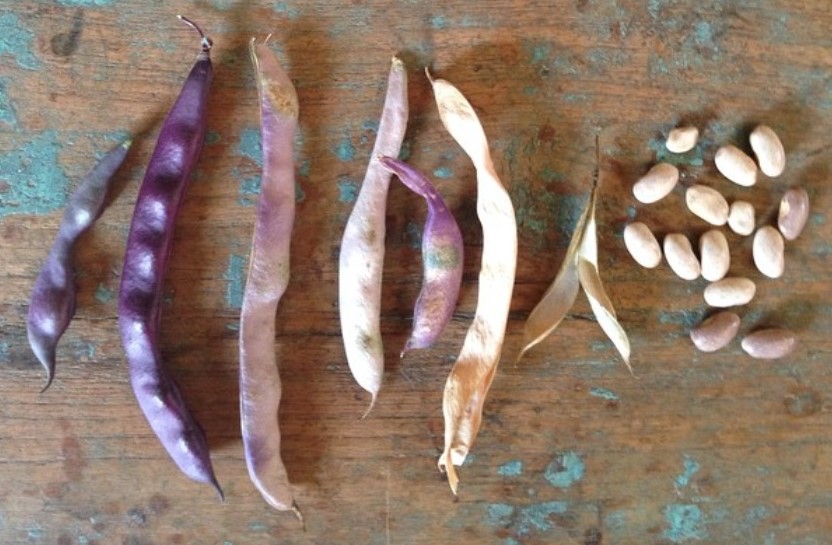Everything starts with a seed… and so did our adventures as a fledgling research team based in the UK and South Africa, brought together through the British Council Farming for Climate Justice programme 2021-2022, coordinated by a transdisciplinary team of experienced researchers from the Centre for Agroecology, Water & Resilience (CAWR) at Coventry University and the Bio-economy Research Chair at the University of Cape Town (UCT).
Following a series of thought-provoking webinars and online interactive workshops on agroecology and climate justice, led by the Farming for Climate Justice team, we were invited to break out into sub-groups and lead a pilot research project connected to these issues. Our sub-group was formed of five researchers, activists, growers and educators based in the UK and South Africa with an interest in agroecology. Together, we worked virtually to develop a live project on farming for climate justice.
As we got to know one another via a series of online zoom meetings, it transpired that we all shared a passion in the vital importance of seed for climate justice and a shared recognition that, to date, the pivotal role of farmer-bred and community-saved seed in agroecological transitions remains largely overlooked. We designed a pilot research project that sought to investigate the role of farmer-led and community-based seed systems for climate resilient food futures.
Three of our team are based in the UK (Poppy Nicol, Georgie Styles and Dennis Touliatos), one in South Africa (John Nzira) and one between Eswatini and South Africa (Maya Marshak). Drawing upon the geographical location and local knowledge of our research team, we decided to focus our research on the small nation of Wales and the Vhembe District in Limpopo, South Africa.
We interviewed representatives from five seed-saving initiatives in Wales and five seed savers based in the Vhembe District. Interviews involved a farm walk and followed a semi-structured interview framework. Our aim was to interview growers as knowledge-holders who have deep experience and knowledge of working with seed saving in an agroecological context. The multi-sited approach enabled us to gain insight into lived experiences of saving seed amidst shifting climate patterns.
Wet and windy Wales
Travelling as a team of three across Wales in severe rain and storm conditions, the need for seed varieties that can withstand extreme conditions felt very pertinent. As the IPCC ‘Climate Change 2022’ report notes, extreme weather events are likely to increase in frequency and magnitude into the future. Seed savers interviewed in Wales highlighted concern not only at increasing rainfall but also increasing frequency and magnitude of wind and storm events.
In Pembrokeshire, we interviewed a farmer working to revive heritage grains, a seed cooperative working to save and distribute diverse crop varieties for home-scale, allotments and small-scale farms. In Powys, we interviewed a social enterprise working to support community-based learning about seed saving and a grower working to improve a number of tomato varieties more suitable for cultivation in the cooler, damper climate of mid-Wales.
Drought in Vhembe District
In South Africa, the research team led by John Nzira and his field assistants witnessed tales of another kind of extreme weather condition – drought. Seed savers in the Vhembe district highlighted the need for crop varieties capable of withstanding drought conditions. They interviewed five small-holder farmer seed savers largely growing for self-sufficiency.
Seed savers in South Africa expressed how water efficient and drought tolerant crops and locally adapted varieties are highly valued and how many of these are heritage crops passed down through generations. Yet within commercial seed markets this seed is not regarded as holding these capabilities. Breeding programmes work towards and promise drought resistant traits honed through scientific breeding and genetic engineering techniques, often disregarding the role of generations of farmers working in the context of these challenges to develop seed attuned to them. Seed savers also highlighted the importance of the multiple values of seed including taste, nutrition and food security throughout the seasonal calendar as well as cultural and spiritual value.
Saving seed for future resilience
Our work highlights the vital role of farmer-led and community-based seed systems for thriving regional food systems and that this is particularly important in the face of climate change.
The small number of seed savers we spoke to working on the margins of the food system at present are identified as both pioneers and caretakers, indicating the possibilities for more diverse food systems and keeping the possibilities of seed diversity alive and dynamic. They are passionate about the possibilities for regionalising seed systems, which in turn have the potential to support tastier, more diverse varieties, that are also potentially more resilient to the impact of changing climates.
Find out more
To listen to more in-depth findings of our research, please listen to our podcast.
Our policy brief highlights the need for more recognition of the critical role farmer-led and community-based seed-saving networks play in realising climate justice. We highlight the need for more farmer-led, community-based participatory research as well as transformative policy that both listens to and represents voices and the knowledge of farmers and community-based seed savers.
You can also find out more about the important role of seed savers in protecting diverse crops, regionalising seed systems and helping to ensure varieties that are resilient to climate uncertainties, in our next blog post.
Acknowledgements
With thanks to the British Council, CAWR, UCT and all the seed savers we interviewed for supporting this work.
Blog post co-authored by Dennis Touliatos (CAWR), John Nzira (Ukuvuna) and Maya Marshak (Seed and Knowledge Initiative).
Photo credit – Purple Dwarf French Beans by Maya Marshak.

